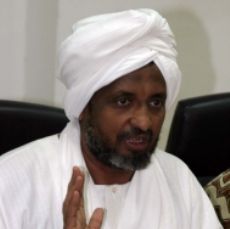Sudan to curb state spending, boost agriculture to offset impact of south secession
December 22, 2010 (KHARTOUM) – North Sudan will constrain government spending and increase agriculture productivity in order to counterbalance the impact of south Sudan’s widely expected secession on the country’s oil-dependent economy, the country’s ruling party decided on Wednesday.

The oil-producing region of South Sudan is bound for secession from the north in a referendum due in January 2001. The plebiscite is the centerpiece of the Comprehensive Peace Agreement (CPA) which was signed in 2005 to end nearly half a century of intermittent civil war between north and south Sudan.
South Sudan secession will deny the north billion of dollars in revenues generated from south Sudan’s oilfields, which account for nearly 80% of Sudan’s proven reserves of 6.3bn barrels. However, the fact that the pipeline infrastructure that carries the oil to export terminals and refineries are based in the north means that the south will continue to share revenues because it needs the north to sell its oil.
A report presented at the meeting by the party’s secretary for economy and the country’s minister of finance and national economy, Al-Zubair Mohamed Al-Hassan, indicated the “weak impact” of secession on the country’s 2011 public budget because sharing of the oil revenues will continue until the end of the transitional period in July according to the CPA.
The NCP official’s report also stated that oil accounts for only 7 percent of the country’s GDP, a fact he said would lessen the impact of its outage in the public budget of 2012.
According to SUNA, the NCP meeting issued directives to shift the country’s focus to increasing production of strategic commodities like sugar, wheat and corn in order to decrease the demand on hard currency for imports.
In September this year, Sudan instigated a series of measures to reduce imports in order to prevent the Sudanese pound from losing further grounds to the US dollars whose exchange rate reached 3 Sudanese pounds in the black market.
The minister’s report also discussed the increases of prices in local markets, saying that some reasons behind that phenomenon were justified and related to the international economic situation while some were unjustified.
Prices of basic commodities in local markets have skyrocketed as the country hurtles towards the referendum, sparking recent protests in some cities in north Sudan.
(ST)

Young Nation
Sudan to curb state spending, boost agriculture to offset impact of south secession
The hypocrite NCP
The above statement, as far as my eyes could see, is amaxingly full of controdictions. One controdiction says that North Sudan is preparing to step up agricultural productively so as to compensate the looming lose of billions of dollars in the wake of South Sudan’s independence in 2011. The other controdiction says clearly that the lost of billions of dollars will have no impact on North Sudan’s economy. Now, which one is which?
The truth of the matter is that North Sudan lost of oil revenue from South Sudan oil fields could have a desvastation impact on Khartoum budget. There is no doubt regarding this fact. Khartoum should really come to term with this economic tragedy sooner rather than later.
Young Nation is a BA (International Relations) student at The UNiversity of Queensland, Australia